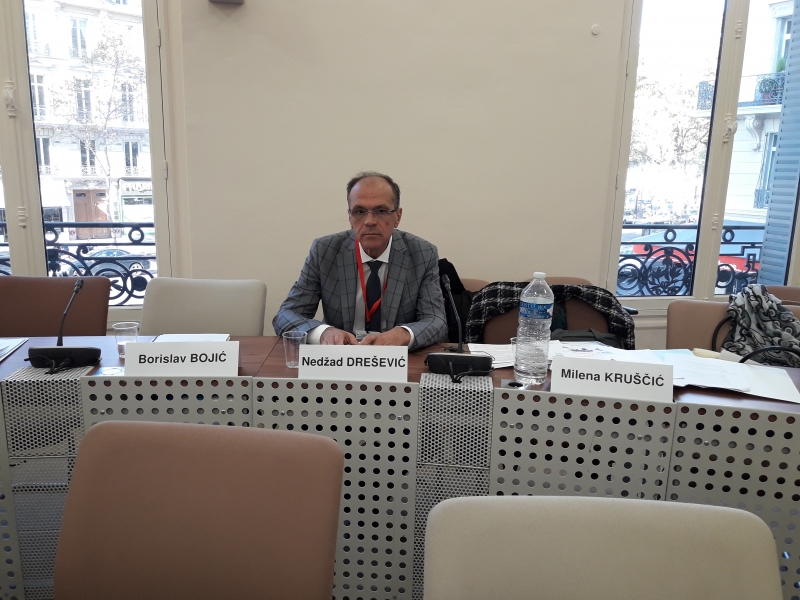The Seminar, on the topic “Employment, training and equal opportunities:
how to ensure fair treatment and inclusion for all”, was organised by the Sub-Committee on the European Social Charter of the Committee on Social Affairs, Health and Sustainable Development of the Parliamentary Assembly of the Council of Europe (PACE).
Representatives of 31 countries, in which the non-conformity of the state legislation and practice with the European Social Charter based on the conclusions from the 2016 Report of the European Committee on Social Rights (ECSR) was reported, were invited to attend this seminar. Articles 1, 10, 15, and 20 of the European Committee on Social Rights were highlighted as the subject of most non-conformity cases.
The topics for discussion, which consisted of the morning and the afternoon session, were as follows: harmonisation of social rights with the demand in the labour market, roles of parliaments, governments, trade unions and the private sector in the harmonisation process, equal living and work conditions and employment of vulnerable population groups such as persons with disabilities, women, minorities, young people, elderly persons, mega-trends in the world of work and their policy implications for European countries, challenges of embracing new forms of employment and occupational mobility, as well as understanding non-standard employment for (re)shaping social protection.
The Seminar was opened by Ms Sevinj Fataliyeva, Chairperson of the Sub-Committee on the European Social Charter, while the introductory presentation was given by Ms Eliane Chemla, General Rapporteur of the European Committee of Social Rights.
This was followed by the first session, in which the presentations were given by Mr Rudi Delarue, Deputy Head of Unit at the Directorate General for Employment, Social Affairs and Inclusion of the European Commission and Mr Jérôme Halb, Deputy Director for European Cooperation and Strategy at the Council of Europe Development Bank. The OECD representative did not attend the Seminar, but Ms Fataliyeva read a brief summary of the research paper by OECD “Future of Work and Skills”.
in the afternoon session, the participants were addressed by Ms Anna Ludwinek, Research Manager for Social Policies at the European
Foundation for the Improvement of Living and Working Conditions (Eurofound) and Ms Mariya Aleksynska, Economist and Labour Market Specialist of the International Labour Office (ILO).
Key topics of the Seminar were: the right to work, the right to vocational training, the right of persons with disabilities to independence, social integration and participation in the life of the community, as well as the right to equal opportunities and equal treatment in matters of employment and occupation.











